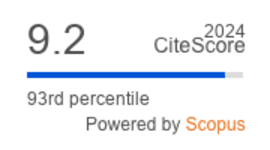Oral Dietary Supplements Use among Healthcare Workers during the COVID-19 Pandemic in Malaysia
DOI:
https://doi.org/10.36877/pmmb.a0000236Abstract
Healthcare workers (HCWs) must be aware of the latest data supporting or refuting the use of oral dietary supplements (ODS) in order to disseminate evidence-based health information and help patients make informed decisions. Nevertheless, there is relatively scant data on the prevalence of dietary supplement use among HCWs, the types of dietary supplements recommended to patients by HCWs, and their reasons for recommending these products, particularly during the COVID-19 outbreak. This study examined the prevalence of ODS use among surveyed HCWs, considered the types of ODS used and recommended by those HCWs, identified the reasons given by those HCWs for using or not using ODS, and determined whether those HCWs were recommending or not recommending ODS to their patients during the COVID-19 pandemic. This cross-sectional study targeted all HCWs working at a district hospital in Malaysia and was conducted via a self-administered online survey. The survey revealed that 67.3% of HCWs did not recommend ODS for patient use during the pandemic, despite 55.3% of HCWs reported personal use of ODS during the pandemic. Type of HCWs (P=0.001), monthly household income (P=0.019), prior ODS use (P<0.001) and recommendation of ODS to patients (P<0.001) were significantly associated with personal ODS use during the pandemic. Vitamin C was the most commonly used (81.3%) and recommended (95.0%) ODS. “To maintain overall health and wellness” was the most common reason for personal ODS use and recommendation to patients (83.3% & 79.2%). Given the increasing rate of ODS use during the pandemic, further research should be done so that evidence-based recommendations can be formulated to ensure patient safety.
Downloads
Published
How to Cite
Issue
Section
License
Copyright (c) 2021 Heoy Teng Lee , Hong Chuan Loh, Siti Nur Liyana Ramlee, Irene Looi

This work is licensed under a Creative Commons Attribution-NonCommercial 4.0 International License.
Author(s) shall retain the copyright of their work and grant the Journal/Publisher right for the first publication with the work simultaneously licensed under:
Creative Commons Attribution-NonCommercial 4.0 International (CC BY-NC 4.0). This license allows for the copying, distribution and transmission of the work, provided the correct attribution of the original creator is stated. Adaptation and remixing are also permitted.

This broad license intends to facilitate free access to, as well as the unrestricted reuse of, original works of all types for non-commercial purposes.
The author(s) permits HH Publisher to publish this article that has not been submitted elsewhere.



.png)

.jpg)
